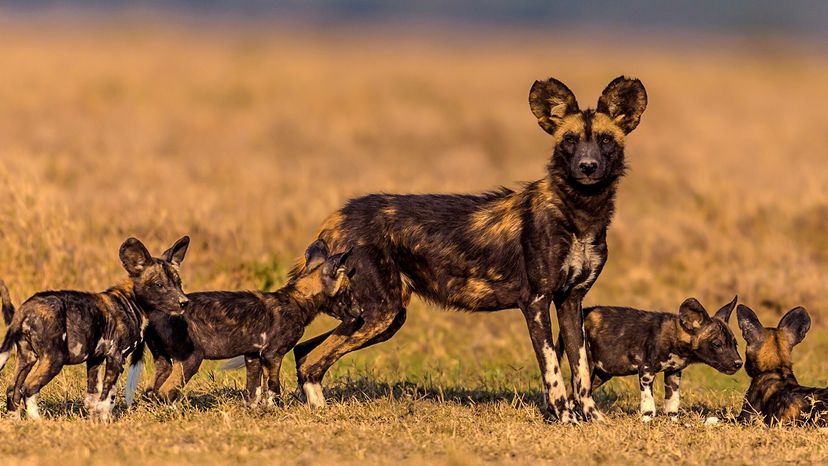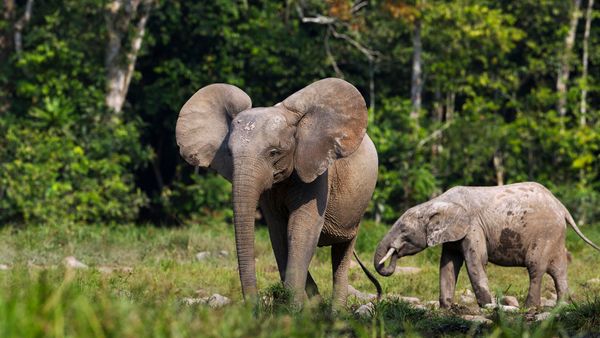
Key Takeaways
- African wild dogs, also known as Cape hunting dogs, are carnivorous mammals with unique, four-toed feet and distinct coat patterns.
- They inhabit Sub-Saharan Africa, primarily in southern and southern East Africa, hunting antelopes, hares and lizards.
- Their populations have drastically declined due to habitat loss, human conflict and diseases, making them one of the world's rarest mammals.
The African wild dog is one of the world's rarest mammals. At a glance, people unfamiliar with the species misidentify it as a hyena. While both animals are spotted, the African wild dog has round ears and longer legs than hyenas.
Famously elusive, the African wild dog hunts in packs to take down animals several times its size. Learn more about this unique and endangered member of the dog family.
Advertisement
Advertisement
